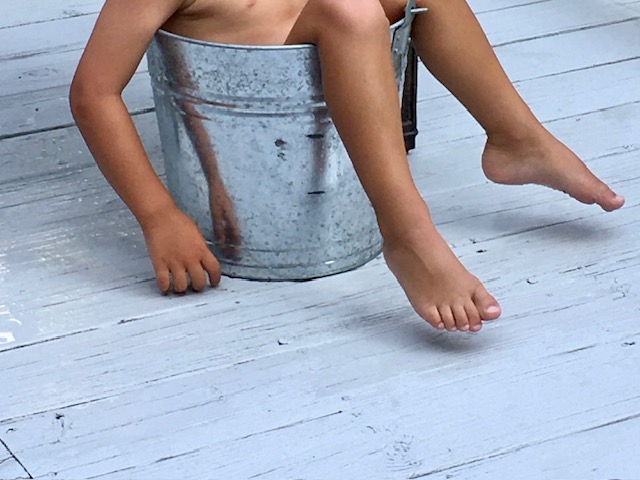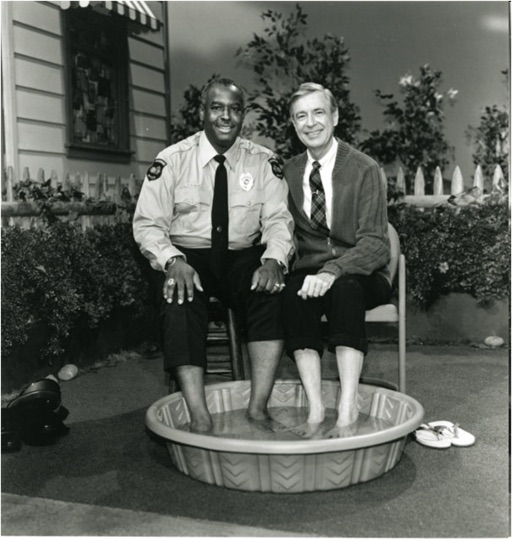It’s getting on towards bedtime as we drive home from church. There’s a powerful odor of boy-feet wafting from the back seat. Professor and Jackrabbit are altar servers, which means they’ve been afflicting the priest, deacons, and other servers with that foot funk. I announce that they’re taking baths when we get home.
The negotiation begins. The negotiation is always the same. Do we have to wash our whole body? All of it? Surely not the hair, Papa. Please, we beg you, not the hair.
It’s been a long week, so I agree to limit my bath fatwa to their feet. On account of I can smell those feet from where I sit. We get home and they set to it. I hear the water running, the splishy-splash of washing, the inevitable tumble off the bathtub’s edge. Finally, they present their feet for inspection.
Nobody warns you that crouching to smell feet and sniff breath will be among the duties you adopt after you procreate.
They don pajamas and prepare for bed. I draw them close for hugs, and this is when I smell in their hair the sweetest admixture of little boy and incense. Somehow they smell both familiar and otherworldly.
Holy, even.
I read once that smell is one of the earliest senses to emerge in babies. It’s how we tell our mamas from the frightening multitude of not-mamas out there. As a consequence, smells can affect us deeply. They don’t just remind us of lost loves, of mama’s kitchen, of that terrifying night in the ER—in a way they can pull us into those places again.
And maybe sometimes they can even draw us heavenward.
C.S. Lewis observed that every person we meet is either an immortal horror or an everlasting splendor. “There are no ordinary people,” he wrote. “You have never talked to a mere mortal.” Of course he didn’t mean that every person is purely evil or purely good. We all bear within us some profanity, and some divinity. Over the course of our lives, we choose which part to nurture.
And we choose also which part we see, and hear—and yes, smell—in others, including our own children. The stinky feet or the heavenly hair.
And what we see in them, well, that’s what they learn to see in themselves, isn’t it?



